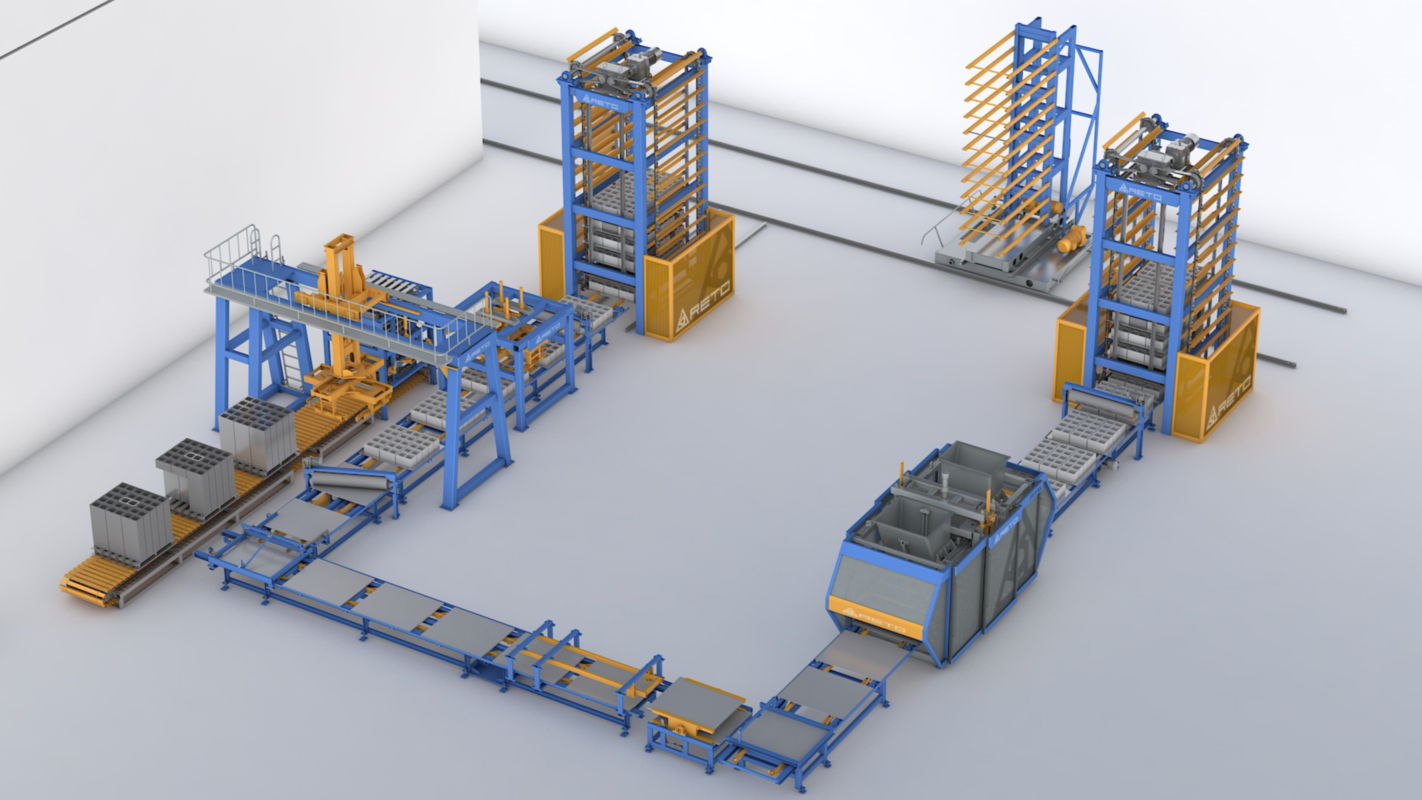International Block Machines (IBM) is a company that designs and manufactures block making machines for the production of concrete blocks, pavers, and other masonry products. IBM offers a range of machines, from small manual machines to large fully automated models, and serves customers in over 100 countries around the world.
Block making machines from IBM are best used for the production of concrete blocks, which are used in a variety of construction projects, such as building walls, foundations, retaining walls, and more. Concrete blocks are a popular building material due to their durability, strength, and affordability. They are also fire-resistant, energy-efficient, and low-maintenance.
Here are some of the ways in which block making machines from IBM can be best used:
Home construction: Block making machines can be used to produce concrete blocks for the construction of homes and other residential buildings. Concrete blocks can be used for load-bearing walls or as decorative elements in home construction.
Commercial construction: Block making machines can also be used for commercial construction projects, such as office buildings, schools, and hospitals. Concrete blocks are a popular building material for their strength, durability, and fire resistance.
Landscaping: Concrete blocks can also be used for landscaping projects, such as creating retaining walls, garden beds, and other outdoor features. Block making machines from IBM can produce a variety of shapes and sizes of concrete blocks, allowing for a range of creative landscaping designs.
Infrastructure projects: Concrete blocks can also be used for infrastructure projects, such as building bridges, tunnels, and other transportation structures. Block making machines can produce large quantities of blocks quickly and efficiently, making them a cost-effective option for infrastructure projects.
Overall, block making machines from IBM are best used for the production of concrete blocks for various construction and landscaping projects. international block machines They offer a cost-effective, efficient, and reliable way to produce high-quality blocks in a range of shapes and sizes.
How does the cost of using concrete blocks compare to other building materials?
The cost of using concrete blocks as a building material can vary depending on a variety of factors such as location, availability of materials, and the type of construction project. However, in general, concrete blocks are a cost-effective building material compared to other options.
Here are a few reasons why:
Affordability: Concrete blocks are an affordable option for construction because they can be produced from readily available materials, such as cement, sand, and gravel. This makes them a cost-effective choice for large-scale construction projects, as the cost of materials is relatively low.
Durability: Concrete blocks are durable and long-lasting, which can save money over time by reducing the need for repairs and replacements. Additionally, they are resistant to pests, fire, and other environmental hazards, further reducing maintenance costs.
Energy efficiency: Concrete blocks are energy-efficient because they have a high thermal mass, which helps to regulate indoor temperatures and reduce the need for heating and cooling. This can result in lower energy bills and cost savings over time.
Sustainability: Concrete blocks can be produced using sustainable materials, such as recycled concrete or fly ash, which can reduce the environmental impact of construction. Additionally, concrete blocks can be recycled and reused at the end of their service life, further reducing waste and environmental impact.
Versatility: Concrete blocks can be used in a wide range of construction projects, from residential homes to commercial buildings and infrastructure projects. They are available in a variety of sizes and shapes, making them a versatile option for many different types of construction projects.
Overall, the cost of using concrete blocks as a building material can be lower than other options, such as brick or stone. They are an affordable, durable, and energy-efficient option that can be used in a variety of construction projects. Additionally, their sustainability and versatility make them an increasingly popular choice for builders and contractors.
